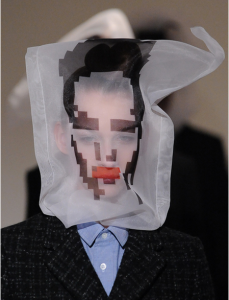Fashion Technology And The Pursuit Of Mass Customization
By Anya Ferring

Increasingly, apparel companies are using information technology and new innovations to enhance their manufacturing systems. Customer relationship management systems, mobile technologies and supply chain tracking, for example, are receiving the most attention among U.S. manufacturers.
But with a general oversupply of production capacity worldwide, the pricing power has shifted to the customer. In almost all cases, the customer can access multiple sources of information on pricing inputs and take preemptive action to negotiate or demand lower pricing. In an environment where sales growth is a challenge, most companies are faced with designing into cost on tight margins, just to get their products to market.
But access to information also means that customers can identify value as well, something many made-in-America brands are already well aware of. Customers are not only searching for the best bargains, but the best in quality as well—which can often take the form of a custom design or custom fit. Many brands are attempting to take advantage of this potentially industry-shaking wave of innovation with ongoing experimentation in the idea of mass customization, in which clothes are made for an individual’s preferences or sizes. It’s a departure from the model of selling standardized, mass-produced goods that has dominated retailing for more than a century.
Why is this so groundshaking from a manufacturing point of view? Well, if even a small portion of a retailer’s goods are made on-demand, it could slash some of their costs, since there would be no risk of getting stuck with inventory that customers didn’t like. It could also allow brands to react on the fly to trends, an increasingly powerful weapon at a time when social media is acting as rocket fuel for fashion fads. And it could help retailers meet the expectations of a customer who is increasingly seeking out one-of-a-kind, boutique-like goods, even if they are located halfway around the world. Ministry of Supply and its 3-D knitting machine located at its Boston retail location are examples of one such brand who are paving the way in this direction. 3-D knitting is just one tool that could eventually be used to bring personalized garments to the masses–But if this and other similar efforts are successful, they could set off a scramble in the fashion business to radically transform the long-standing supply chains and design methods that are used to make clothes today.